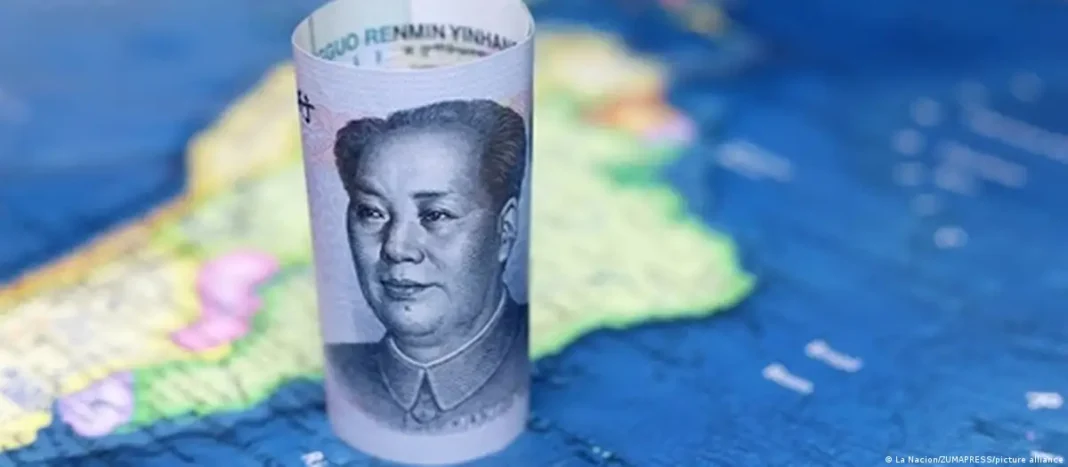It came as a shock to Guatemalan exporters: according to media reports, China had recently banned the import of Guatemalan coffee and other goods.
There was no official explanation. Guatemalan President Bernardo Arevalo, however, presumed there was a connection to his country’s ties with Taiwan. “We will take care of it,” Arevalo said.
Apart from Paraguay, Guatemala is now the only Latin American country with diplomatic ties to Taiwan. Beijing regards the island nation as part of the People’s Republic of China. In recent years, Honduras and Nicaragua changed sides, turning their backs on Taiwan and seeking rapprochement with Beijing.
Several small conflicts in Latin America
The blockade of Guatemalan goods is one of several minor conflicts beginning to overshadow China’s course in Latin America, which has long been oriented toward growth and expansion.
Those conflicts were, however, of a different nature, Vladimir Rouvinski, an associate professor with the Department of Political Studies at Icesi University in Cali, Colombia, told DW.
“In this case, China clearly uses something as leverage, and it does this less against Guatemala, but rather against Taiwan,” he said.
In Costa Rica, the government urged one of the managers of state-owned energy supplier ICE to leave the company after some 70 high-ranking employees had visited a party organized by Chinese technology giant Huawei.
Trade unionists were appalled, while ICE’s president, Mario Acuna, urged more sensitivity in the face of simultaneous “contracting procedures and various litigations.” The conduct of the employees involved could harm “the image of the institution as well as our reputation,” he said.
‘China has to play by the rules as well’
Relations between Costa Rica and Huawei are strained after President Rodrigo Chaves established the Budapest convention on fighting cybercrime, which China has not signed, as a standard for economic engagement in Costa Rica.
Afterwards, Huawei’s chief executive for Latin America criticized Costa Rica’s approach as “unprofessional.” “This is a message for Beijing: China has to play by the rules as well,” Rouvinski told DW.
The Budapest Convention is the first international agreement on crimes committed on the internet. Focus areas are copyright infringements, computer-related fraud and violations of network security.
There are other examples of economic conflicts between China and Latin American countries. One of them involves cheap steel imports from China, which puts Latin American steel producers under a lot of pressure, thus sparking anger.
In Brazil, meanwhile, cheap textiles from China are posing a serious threat to fashion boutiques. Accusations against Chinese companies causing environmental damage with their operations have also sparked debate.
Brazil imposes tariffs on Chinese imports
Brazil is now fighting back against cheap Chinese imports by imposing a 20% tax. This affects goods valued under $50 (€46) which are bought via international shopping websites.
According to Brazilian media, Chinese online retail platform AliExpress was “surprised” by the decision, as the tax would primarily hit the poorest and discourage foreign investment in the country.
In the textile industry, considerable anger has been directed at Chinese suppliers, because conglomerates such as Shein, which don’t produce their goods under the same conditions and general framework as small Brazilian firms, are pushing thousands of local companies out of the market. At the grassroots level, there’s a growing feeling that China’s strategy destroys local trading structures rather than making them profitable.
Who profits from Chinese-Latin American trade?
“Recently, the challenges and risks related to the rise of China as a dominant actor in many economy and technology areas have become more and more apparent in Latin America as well,” Christian Hauser, an expert on Latin America at the University of Applied Sciences in Graubünden, Switzerland, told DW.
Various Latin American societies are increasingly feeling that it’s predominantly Beijing which has profited from the region’s economic relations with China, said Hauser. Therefore, he said, current criticism of China’s trade practices could become even more pronounced.
In addition, a foreign policy element often plays a role. “Latin American countries find themselves increasingly entangled in the conflict of geopolitical rivalry between the US and China,” added Hauser.
“Against this backdrop, the current tensions between some Central American countries, like Guatemala and Costa Rica, and China are probably only the beginning of more conflict-ridden relations in the future,” he said.
Only China’s relations with Nicaragua seem untarnished. The country’s authoritarian government has banned countless NGOs, including many which championed environmental protection.
According to reports by Nicaraguan media critical of the government, Chinese companies operating in the country have received 13 mining concessions within little more than half a year.
This article was originally written in German.
.dw.com

